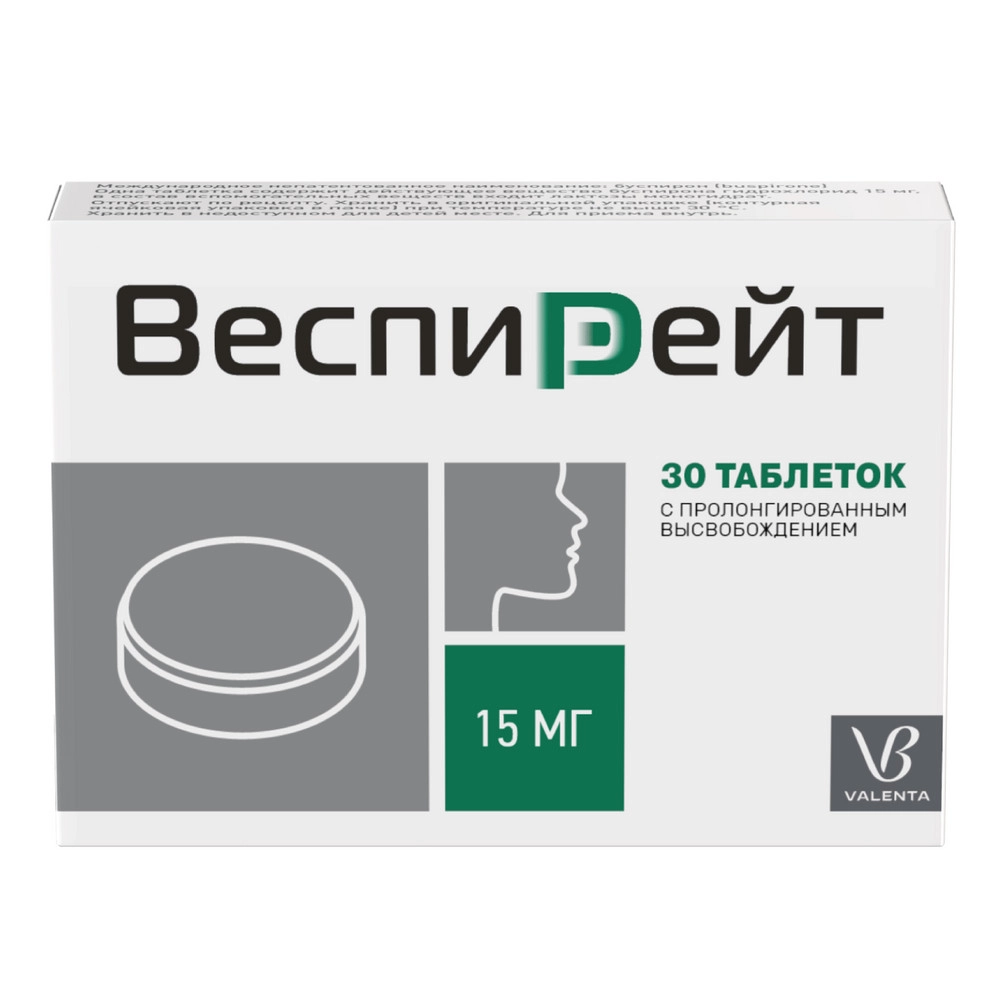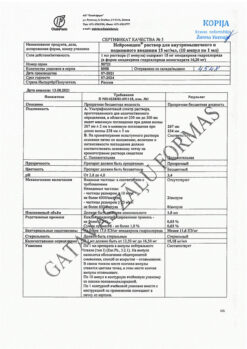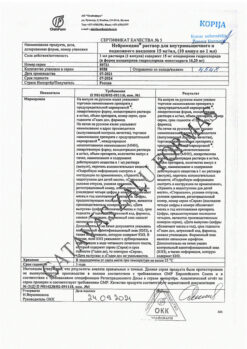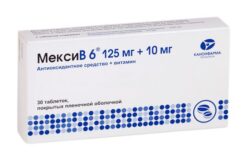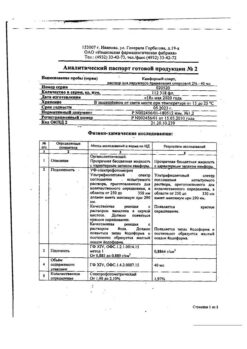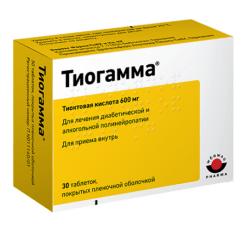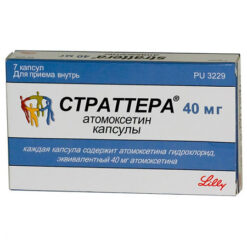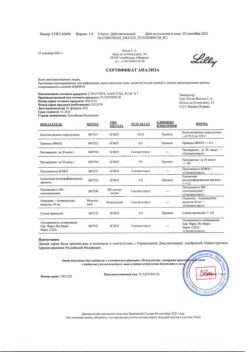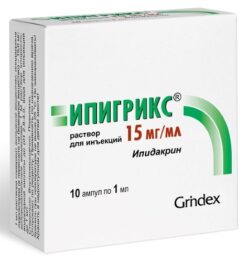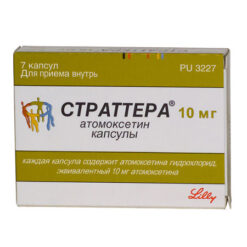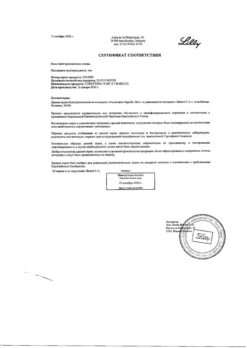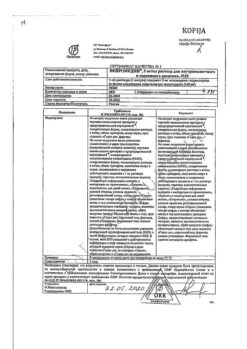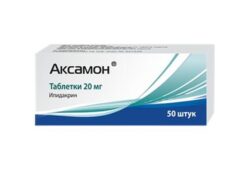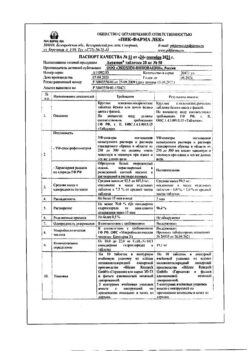No products in the cart.
Vespirate 15 mg 30 pcs. prolonged release tablets
€29.34 €21.32
SKU: 0287331
Categories: Medicine, Neurology and Psychiatry, Sedatives and hypnotics, Uncategorized
Description
The drug Vespirate® is indicated for use in adults aged 18 years and over with autonomic dysfunction syndrome accompanied by dizziness (functional dizziness).
Instructions
Instructions
Always take the medicine exactly as your doctor tells you. If you have any doubts, consult your doctor.
Recommended dosage: One tablet once daily.
Orally. Tablets should be taken whole, without breaking or chewing, at the same time in the morning, after meals.
Duration of therapy
The recommended duration of treatment is 28 days.
If you forget to take Vespirate®
If you miss a dose of Vespirate®, do not take a double dose. Wait until it is time for your next dose and take only the next dose.
If you have any questions about the use of the drug, please contact your doctor.
Composition
Composition
Vespirate® contains:
The active ingredient is buspirone.
Each tablet contains 15.00 mg buspirone (as hydrochloride).
Other ingredients (excipients) are: lactose monohydrate, microcrystalline cellulose, hypromellose, colloidal silicon dioxide, magnesium stearate.
Contraindications
Contraindications
Do not take Vespirate®:
• if you are allergic to buspirone or any other ingredients of the medicine listed in section 6 of the leaflet;
• if you are taking medications that affect liver function (inhibitors and inducers of the CYP3A4 cytochrome P450 isoenzyme);
• if you have a disease in which one or both kidneys cannot fully perform their functions (renal failure);
• if you have a serious liver disorder that develops either suddenly or as the last stage of chronic liver disease (liver failure);
• if you have a chronic brain disease that manifests itself in a predisposition to sudden onset of seizures (epilepsy);
• if you have acute intoxication caused by alcohol, sleeping pills and painkillers (analgesics) or drugs that affect the nervous system (antipsychotic drugs).
Children
Vespirate® is contraindicated for use in children aged 0 to 18 years (the safety and efficacy of the drug in children aged 0 to 18 years have not been established). No data available.
Pregnancy and breastfeeding
If you are pregnant or breastfeeding, think you may be pregnant, or are planning to become pregnant, talk to your doctor before using Vespirate®.
• Do not use Vespirate® if you are or may be pregnant. If pregnancy occurs, the drug should be discontinued.
• Do not use Vespirate® without consulting your doctor if you are breastfeeding. Before starting buspirone in nursing mothers, the doctor will decide whether to either stop breastfeeding or discontinue treatment with buspirone, taking into account either the benefit to the child (breastfeeding without taking the drug) or the benefit of treatment for the mother.
Vespirate® contains lactose monohydrate
If you have an intolerance to some sugars, consult your doctor before taking the drug.
Special instructions
Special instructions
Before taking Vespirate®, consult your doctor.
Be sure to tell your doctor:
• if you are taking or have taken within the last 14 days medications that suppress a special enzyme called monoamine oxidase, which is involved in the metabolism of chemicals that transmit impulses between nerve cells (monoamine oxidase inhibitors (MAO inhibitors));
• if you have a disease that affects the nerves and muscles (myasthenia);
• if you have an eye disease characterized by constant or periodic increase in intraocular pressure (angle-closure glaucoma);
• if you are dependent on any medications (drug dependence);
• if you have impaired renal function;
• if you have impaired liver function.
Special instructions
If your kidney function is impaired, the concentration of the drug in the blood may increase, which may cause adverse reactions. Do not take Vespirate® if you have kidney failure (see section 2 “Contraindications”). Be sure to tell your doctor if you have kidney failure.
If your liver function is impaired, the concentration of the drug in your blood may increase, which may cause adverse reactions. Do not take Vespirate® if you have liver failure (see section 2 “Contraindications”). Be sure to tell your doctor if you have liver failure.
When Vespirate® is used together with painkillers containing the active substance buprenorphine, a dangerous, possibly life-threatening condition may develop, manifested by a disorder of consciousness, elevated mood, impaired coordination, tremors, shaking, increased body temperature, sweating, changes in the frequency, rhythm and depth of breathing, gastrointestinal disorders (e.g. diarrhea), fluctuations in blood pressure (serotonin syndrome). If you experience these symptoms while taking the drug, contact your doctor.
If you are taking anti-anxiety medications that belong to the benzodiazepine group, tell your doctor. You may need to gradually discontinue therapy with these medications before starting treatment with Vespirate®.
The need for repeated courses of Vespirate® is determined by the doctor.
Children
Vespirate® is contraindicated for use in children aged 0 to 18 years (the safety and efficacy of the drug in children aged 0 to 18 years have not been established). No data available.
Driving vehicles and operating machinery
Vespirate® has a moderate effect on the ability to drive vehicles and operate machinery. The risk of drowsiness or other adverse reactions should be taken into account. This drug may impair cognitive functions and affect the ability to drive vehicles. Depending on the tolerability of the drug, caution should be exercised or driving should be avoided.
Side effects
Side effects
Like all medicines, this medicine can cause side effects, although not everybody gets them.
Most serious adverse reactions
Stop taking Vespirate® immediately and call your doctor if you notice any of the following symptoms of a known severe adverse reaction to buspirone:
Very rare (may affect up to 1 in 10,000 people):
• disturbance of consciousness, elevated mood, impaired coordination, trembling, tremor, increased body temperature, sweating, changes in the frequency, rhythm and depth of breathing, gastrointestinal disorders (eg, diarrhea), fluctuations in blood pressure (serotonin syndrome).
Other possible adverse reactions that may occur when taking Vespirate®
The following adverse reactions have been reported in clinical studies of Vespirate®:
Frequency unknown (frequency cannot be estimated from the available data):
• depression;
• dizziness;
• headache;
• drowsiness;
• impaired coordination of movements;
• ringing in the ears;
• increased blood pressure;
• hypotension;
• nausea;
• vomit;
• weakness.
The following adverse reactions are also known for buspirone:
Common (may affect up to 1 in 10 people):
• nervousness;
• insomnia;
• impaired concentration;
• depression;
• confusion;
• sleep disorders;
• irritability;
• spontaneously arising sensations of burning, tingling, crawling ants (paresthesia);
• impaired coordination of movements;
• tremor;
• blurred vision;
• ringing in the ears;
• increased heart rate (tachycardia);
• chest pain;
• stuffy nose;
• pain in the throat and larynx;
• nausea;
• abdominal pain;
• dry mouth;
• diarrhea;
• constipation;
• vomit;
• cold sweat;
• skin rash;
• musculoskeletal pain;
• fatigue.
Rare (may affect up to 1 in 1,000 people):
• allergic reaction, manifested by acutely developing swelling of the skin and subcutaneous tissue or mucous membranes (angioedema);
• hemorrhages into the skin or mucous membrane (ecchymosis);
• rapid appearance of intensely itchy, flat, raised, pale pink welts similar in appearance to those caused by a nettle sting (urticaria).
Very rare (may affect up to 1 in 10,000 people):
• psychotic state;
• hallucinations;
• disorder of self-perception of the individual and alienation from one’s state (depersonalization);
• mental disorders characterized by a change in emotional state towards depression or uplift (affective disorders);
• dizziness (including lightheadedness);
• headache;
• drowsiness;
• convulsions;
• movement disorders, which are characterized by excessive movements or, conversely, their insufficient quantity and activity (extrapyramidal disorders);
• a movement disorder that is expressed in resistance to any type of movement and manifested in a jerky movement of the limb, as if the surface of the joint is not smooth, but jagged (cogwheel-type rigidity);
• involuntary movements that occur regardless of a person’s wishes (dyskinesia);
• constant or spasmodic contraction of muscles (dystonia);
• an attack of short-term loss of consciousness (syncope);
• memory loss (amnesia);
• violation of coordination and coordination of movements (ataxia);
• difficulty walking, falls, slow pace of movement, difficulty with initial movements, trembling in the arms or legs, trembling of the head, lower jaw, impaired ability to maintain balance, lack of coordination of arm and leg movements while walking (Parkinsonism);
• a feeling of internal motor restlessness, an internal need to move or change position (akathisia);
• unpleasant sensations in the feet and legs when falling asleep, forcing you to constantly move your lower limbs, get up, walk or get a massage (restless legs syndrome);
• anxiety;
• sensation of looking through a narrow tube (tunnel vision);
• urinary retention;
• milk secretion in men, as well as in women outside the period of breastfeeding (galactorrhea).
Reporting Adverse Reactions
If you experience any adverse reactions, consult your doctor.
Interaction
Interaction
Other drugs and Vespirate®
Tell your doctor if you are taking, have recently taken, or might take any other medicines.
Be sure to tell your doctor if you have taken or are taking any of the following medications:
• Drugs that are inhibitors and inducers of the CYP3A4 isoenzyme cytochrome P450 (e.g. rifampicin, phenobarbital, phenytoin, carbamazepine, St. John’s wort, erythromycin, itraconazole, diltiazem, verapamil) when used in combination with Vespirate® may affect its therapeutic effect and increase the likelihood of adverse reactions. The use of Vespirate® together with such drugs is contraindicated (see section 2 “Contraindications”).
• MAO inhibitors. When used with buspirone, an increase in blood pressure has been reported, including to levels requiring emergency medical care (hypertensive crisis). Therefore, the combined use of buspirone with MAO inhibitors is not recommended. At least 14 days should elapse after discontinuing an irreversible (completely blocking the enzyme monoamine oxidase) MAO inhibitor (e.g. selegiline) before starting to take Vespirate® (and vice versa). At least 1 day should elapse after discontinuing a reversible (incompletely blocking the enzyme monoamine oxidase) MAO inhibitor (e.g. moclobemide) before starting to take Vespirate® (and vice versa) (see section 2 “Special warnings and precautions”).
• Medicines that are commonly used as antidepressants in the treatment of major depressive disorders, anxiety disorders and other psychological conditions (selective serotonin reuptake inhibitors (SSRIs)), as well as other drugs that affect the chemical serotonin (serotonergic drugs (eg, MAO inhibitors, L-tryptophan, triptans, tramadol, linezolid, lithium preparations and St. John’s wort preparations)). In rare cases, seizures and serotonin syndrome have been reported with the combined use of buspirone and SSRIs. Therefore, the occurrence of these adverse reactions cannot be excluded when taking Vespirate® concomitantly with any serotonergic drugs. If serotonin syndrome is suspected, stop taking the drug immediately and consult a doctor.
• Fluvoxamine, trazadone (drugs used to treat depression), cimetidine (a drug that inhibits the secretion of acid in the stomach). The use of Vespirate® with these drugs requires precautions.
• Medicines that lower blood pressure (antihypertensive drugs). Medicines used to treat cardiac arrhythmias (cardiac glycosides). Contraceptives taken orally (oral contraceptives). Antidiabetic drugs. Due to the lack of relevant clinical data, the combined use of Vespirate® with these drugs is only possible under close medical supervision.
• Baclofen (a drug that reduces muscle tone), lofexidine (a drug used to treat addiction and ease opioid withdrawal), nabilone (a drug used to treat nausea and vomiting). Drugs usually used to treat allergies (antihistamines). Diazepam (a drug used to treat anxiety), haloperidol (a drug used to treat mental disorders), warfarin (a drug used to thin the blood). Your doctor will decide whether Vespirate® can be taken with these drugs.
Vespirate® with drinks and alcohol
Grapefruit juice
Grapefruit juice increases the concentration of buspirone in the blood, which may cause adverse reactions. You should avoid drinking large amounts of grapefruit juice.
Alcohol
There are no data on the concomitant use of alcohol with a single dose of buspirone exceeding 20 mg. Although there are no reports of alcohol-induced impairment of mental and motor (psychomotor) functions, alcoholic beverages should be avoided during treatment with Vespirate®.
Pharmacodynamics
Pharmacodynamics
The drug Vespirate® contains the active substance buspirone. It belongs to a group of drugs called “psycholeptics; anxiolytics; azaspirodecanedione derivatives”.
The drug Vespirate® reduces dizziness associated with emotional stress, anxiety, fear and restlessness, which is manifested by a false or distorted sense of movement, a feeling of swaying, a feeling of disordered spatial orientation (functional dizziness).
Mode of action of Vespirate®
It is assumed that one of the mechanisms of action of buspirone is the effect on the system that unites the structures of the brain and glands that produce hormones, which is involved in the adaptation of the body in response to external influences (the hypothalamic-pituitary-adrenal system), including those associated with maintaining a sense of stability and coordination in space.
In addition, the anti-anxiety (anxiolytic) effect of buspirone, realized through a system of specialized formations of nerve cells of the brain, sensitive to a substance known as serotonin (serotonin receptors), reduces anxiety disorders (constant “anxious” control over one’s own stability due to fear of a possible fall), which are, on the one hand, one of the causes, and on the other hand, a consequence of clinical manifestations of functional dizziness.
If there is no improvement or you feel worse after 28 days, you should consult a doctor.
Related products
Buy Vespirate 15 mg 30 pcs. prolonged release tablets with delivery to USA, UK, Europe and over 120 other countries.

